Blogs Navigation
Sustainable BusinessRecent posts

Financial Health: Driving Growth in Latin America and the Caribbean
According to the latest Global Findex database, the proportion of adults in Latin America and the Caribbean (LAC) with account ownership rose from 39% in 2011 to over 75% in 2025. This increase was driven by the rise of digital-first financial service providers, expanded government transfers, and innovations that enhance the value proposition, such as the growth of e-commerce and instant payment systems in countries like Brazil, Peru, and Costa Rica.

IDB Invest and the New Push for the Private Sector in Paraguay
Imagine investing in a portfolio of projects in a country with sustained economic growth, low inflation, abundant clean energy, and preferential access to a regional market of 270 million consumers. That country is Paraguay, where IDB Invest has committed to mobilizing up to $1 billion to support strategic private-sector projects that drive sustainable development.
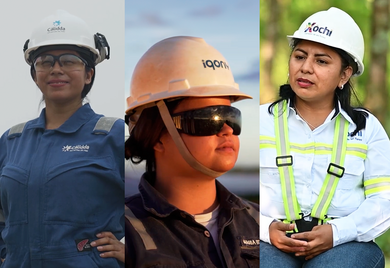
Energy and Transport Infrastructure: Projects Driving Jobs and Transforming Communities
IDB Invest works to boost job creation through the private sector and ensure these opportunities reach areas with the potential to develop new productive sectors and generate formal employment. Financing energy and transport infrastructure projects in Latin America and the Caribbean has been crucial for creating quality jobs and increasing women's workforce participation.

How to finance mobile network operators in Latin America and the Caribbean?
Mobile network operators offer subsidized phones against advanced payments at a reduced price. From a financial point of view, it is not sustainable.
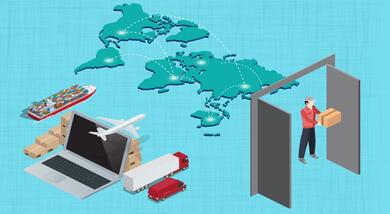
How to take your business global
In an increasingly globalized economy, expanding markets beyond borders constitutes an alternative that businesses —more than ever— are considering among their options for growth. For instance, a group of mega-companies—so-called multilatinas—have capitalized on internationalization opportunities in the region and have seen significant increases in their investments and productivity as a result. A study by the Boston Consulting Group finds these enterprises showed outstanding performance, with 5.2 percent annual growth from 2008 to 2016, compared to 1.8 percent among their peers.
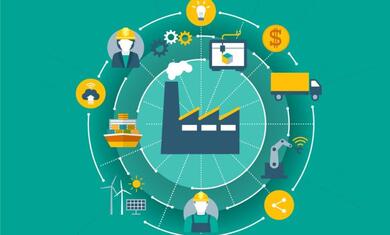
Five considerations for understanding the importance of the manufacturing sector
I landed on Monday, September 3rd, 2018, at the Port-au-Prince international airport in Haiti, completing a milestone that had begun on June 16th, 2004, in my native Costa Rica: visiting each of the 26 borrowing member countries of the IDB Group, promoting the development of Latin America and the Caribbean.
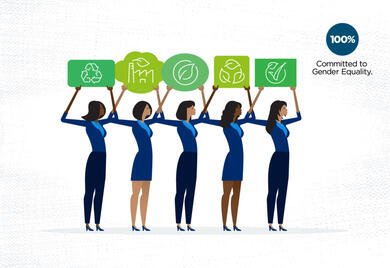
How to create green jobs with a gender perspective?
Climate change has transformed economic models and opportunities around the globe, and Latin America and the Caribbean are not immune to this new reality. At IDB Invest, when we talk to our clients in the region about generating green jobs and applying a gender perspective in their projects, we usually find very good reception and positive responses.
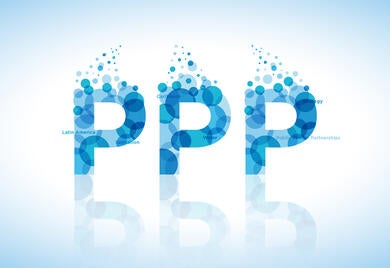
Better PPPs: Are today’s PPP models more sustainable?
There is a renewed interest for Public Private Partnerships (PPPs) in the water and sanitation (W&S) sector in the Latin American and Caribbean Region, proof being their increased number.
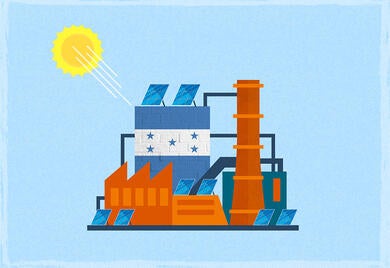
Solar energy: The revolution spurring development in Honduras
When Invema plant, the main plastic recycler in Honduras starts operating, a success formula resonates. It is one of the commercial companies that took advantage of the photovoltaic energy boom in the country. Its case demonstrates how the private sector’s investment in solar energy can facilitate greater economic and sustainable development for the country. Six years ago, the executives of the firm decided to install solar panels in the company, so it could generate its own power. This initiative promised a 20% reduction in energy consumption as well as a significant reduction in greenhouse gases emissions of polluting gases. And so it was. Today, Invema obtains energy savings up to 30% in electricity and reinvests in the focus of its business, recycling, so much so that it is now manufacturing the bottles that Coca-Cola uses in Central America. “We are very proud, because thanks to the solar panels, IDB Invest’s doors/channels opened up and allowed us to make the investments we dreamed,” says George Gatlin, the manager of Invema, which is located in the northern city of San Pedro Sula. Invema is part of many companies and private consortia that have opted for photovoltaic energy since Honduras decided to reform its electricity subsector to revert its electricity matrix from thermal to renewable. The reforms began in 2012, when generation using fossil fuels accounted for 70% compared to 30% for renewables. This thermal hegemony was reflected in increasing oil billing, carbon dioxide emissions, high tariffs up to US$0.30 per kilowatt (KW) produced, and frequent rationing. Following the reforms, led by the government with the advisory services of the Inter-American Development Bank (IDB), there was an upsurge in renewable energy until the energy matrix was completely reversed compared to 2012. The latest report from the Central Bank of Honduras (BCH) in 2018 records a 75% electricity generation based on renewable sources, and an 11% share of photovoltaic energy. This percentage translated into 433 megawatts (MW) of installed capacity at the end of 2016, placing Honduras in the lead of solar generation in Central America and third in Latin America, after Chile and Mexico. “We are witnessing a revolution in the electricity sector, not just in Honduras, but worldwide, because energy storage is changing the concept, points out Carlos Jácome, IDB energy specialist who has participated in the reforms process in Honduras. “The Bank support comprises studies and soft financing. Later, the savings make it possible to improve the productivity of these companies because they can use what they no longer pay in energy to expand their businesses,” comments Jácome. Since 2012, the IDB and IDB Invest have provided technical assistance to Honduran commercial, industrial, and institutional sectors to investigate the technical and financial feasibility of photovoltaic projects. To date, 22 studies have been completed for projects ranging from 40 kilowatts (kW) to nearly 3 MW of installed capacity. Official reports indicate that interest in photovoltaic projects have increased due to a reduction in about 40% of the installation costs over the last five years. Behind this innovation there are three combined components that have resulted in a successful formula: i) the impetus of government that created favorable conditions for investment; ii) the decisions made by entrepreneurial companies; and iii) the IDB’s ability to evaluate and finance the projects. The initial investments in photovoltaic development in Honduras involved a shared risk for IDB Invest and its clients. Nonetheless, what made the difference is the technical capabilities of the Bank for evaluating and support for this type of investments. The Honduran experience encourages entrepreneurship and new markets while demonstrating that IDB Invest is the partner of choice for innovative markets. Experiences of this kind should be replicated in the region. The first photovoltaic investments began in 2015, when 388 MW were installed, followed by 45 MV more in 2016, according to reports from the National Electrical Energy Company (ENEE). According to the ENEE, the Honduran commercial and industrial solar energy market is quite different from what it was in 2012, starting with changes in electricity billing (between 11 and 18 cents per kW per hour), installation costs for panels, legal regulations, and the availability of photovoltaic manpower in the region. In addition to this, national capacities have developed with the installation and administration of photovoltaic projects. “Before, if a Canadian, Spaniard or a Costa Rican person did not show up to supervise the project it didn’t move forward. Now the Hondurans themselves have been strengthening all these positions. There is a friendly environment for investment,” notes Elsia Paz, President of the Honduran Renewable Energy Association (EHER), one of the entities that emerged in the context of these reforms. Download the full story here: “Solar Energy: The Revolution Spurring Development in Honduras” Subscribe to receive more content like this! [mc4wp_form]


